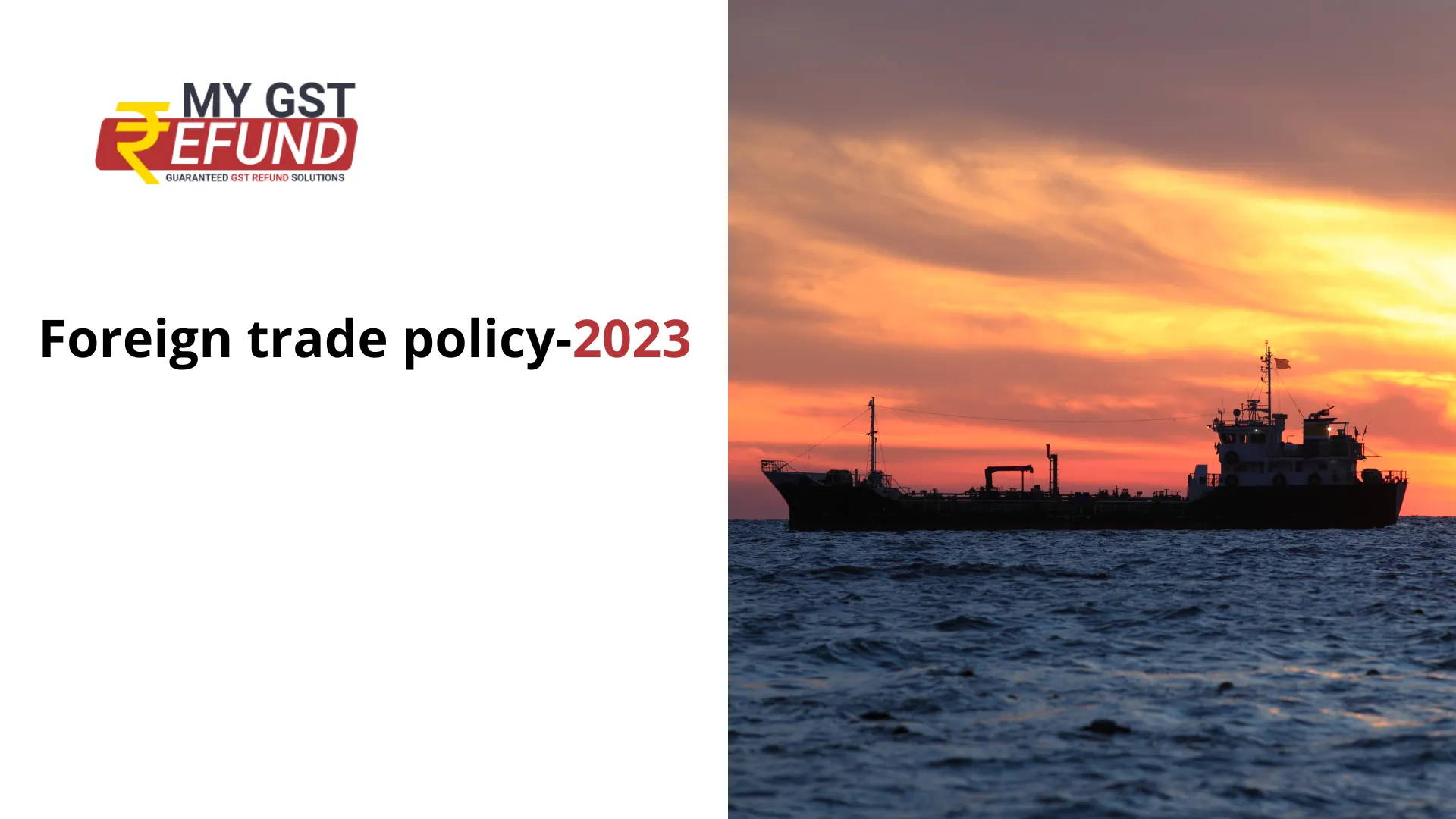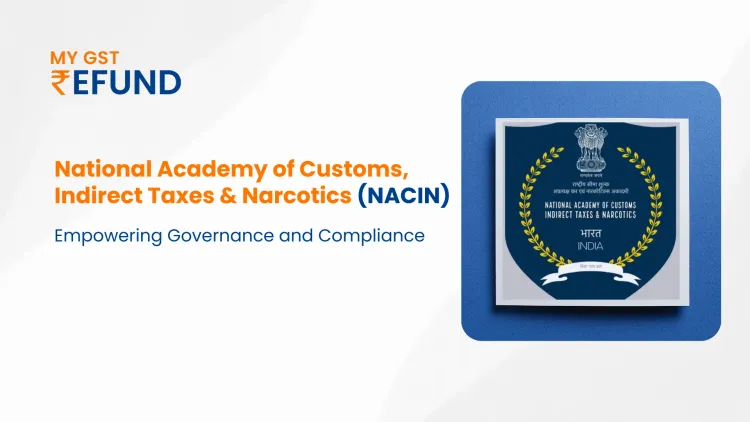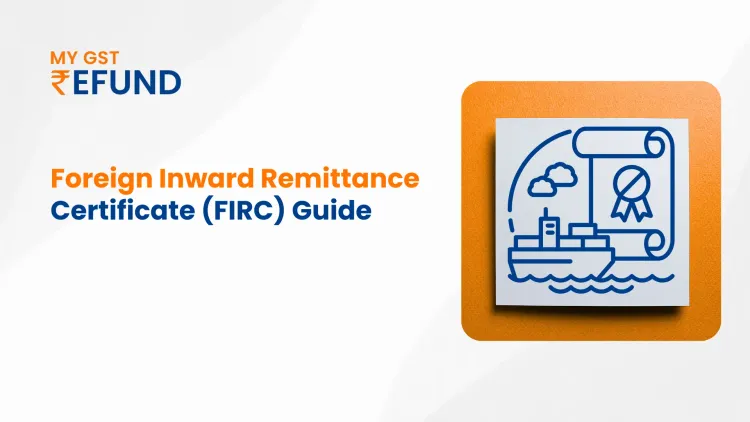Policy on foreign trade is revealed by the central government of India through the ministry of commerce and industry. In this blog we will discuss important aspects of foreign trade policy 2023.
Objectives of Foreign Trade Policy 2023
The goals of the Foreign Trade Policy 2023 (FTP) are as follows:
1. Integrate India with global markets: Indian government aims to establish good relations with other countries to become a developed country by 2047.
2. Build a future-ready India: Foreign trade policy aims to prepare India for future consequences and to become a leading exporting nation in future.
3. Create a supportive environment:Instead of relying on heavy incentives foreign trade policy aims to create a supportive environment.This supports the 'Atma Nirbhar Bharat' and 'Local goes Global' initiatives.
4. Collaborate with state governments: Some policy in foreign trade policy encourage state governments to collaborate to promote export at district level.
5. Triple India’s exports: Value of export of goods services is 760 billion dollars and aims to increase it to 2 trillion dollars by 2030.
Important Part of Foreign Trade Policy 2023
Trade Facilitation and Ease of Doing Business
National Committee on Trade Facilitation (NCTF): In April,2016 India authorised the World Trade Organisation Trade Facilitation Agreement[TFA]. The National Committee on Trade Facilitation is set up by the government to implement the provisions of TFA.
DGFT as a facilitator of exports/imports: The Directorate General of Foreign Trade (DGFT) is established to support export and import.DGFT mainly focuses on efficient ,transparent and accountable delivery systems for good governance.
Export of perishable agricultural products: Agricultural and Processed Food Products Export Development Authority[APEDA] established a single window system to reduce costs related to transactions and handling.
Niryat Bandhu: This Scheme works as a mentor for new import-export entrepreneurs established by DGFT.
e-Certificate of Origin (e-CoO): Unified digital platform is established by DGFT for issuing preferential and non-preferential certificates of origin.
General Provisions regarding Imports and Exports
1. Authority to specify procedures: DGFT
2. Importer-Exporter Code (IEC):To conduct export-import activities you have to obtain IEC is a 10 digit alphanumeric number.
3. The FTP aims to partner with state governments and advance the Districts as Export Hubs (DEH) initiative to boost exports at the district level and promote the development of a local trade ecosystem.
Duty Exemption/Remission Schemes
1. Duty Exemption Schemes: The Duty Exemption schemes include Advance Authorisation (AA) (including Advance Authorisation for Annual Requirement) and Duty-Free Import Authorisation (DFIA).
2. Duty Remission Scheme: Department of Revenue managed the Duty Drawback Scheme
3. Scheme for Rebate on State and Central Taxes and Levies (RoSCTL) : announced by the Ministry of Textiles.
4. Schemes for Remission of Duties and Taxes on Exported Products (RoDTEP) : Announced by the Department of Commerce and managed by the Department of Revenue.
5. Duty-Free Import Authorisation Scheme:This scheme allows duty free import and also allows the import of oil and catalyst used in the production for exports.
Export Promotion Capital Goods Scheme (EPCG)
- Facilitation under the Export Promotion of Capital Goods (EPCG) Scheme
- Import of capital good for export production charges zero custom duty under EPCG scheme.Some key changes include:
- EPCG added PM MITRA as an additional scheme eligible for benefits under the common service provider.
- Electronic vehicles,farming equipment ,rainwater harvesting systems and recycling systems etc are now categorised as green technology products. These will qualify for reduced Export Obligation requirements under the EPCG Scheme.
Amnesty Scheme:
Foreign Trade Policy,2023 introduced a new scheme known as Amnesty Scheme aimed to find the faults in export obligations.Exporters will get relief from this scheme because exporters are unable to fulfil their obligations under EPCG.
Export Oriented Units (EOUS), Electronics Hardware Technology Parks (EHTPS), Software Technology Parks (STPS) And Bio-Technology Parks (BTPS):
Units whose entire production is for export except their sale in the domestic tariff area falls under the export oriented area[EOU],software technology park or Biotechnology park.
The aim of this scheme is to boost export and attract investment for export oriented production.
Facilitation under Advance Authorization Scheme
The Advance Authorization Scheme allows units in the Domestic Tariff Area (DTA) to import raw materials duty-free for manufacturing export products, putting them on par with the benefits provided under EOU and SEZ schemes.
Promoting Cross-border Trade in Digital Economy
- FTP 2023 sets out plans to create e-commerce hubs and addresses aspects like payment reconciliation, bookkeeping, returns policy, and export entitlements.
- Limit of e-commerce export on individual through courier increased from 5 lakh to 10 lakh.
- Dak Ghar Niryat Kendras will be set up nationwide in a hub-and-spoke model with Foreign Post Offices (FPOs) to support cross-border e-commerce and assist artisans, weavers, craftsmen, and MSMEs in rural areas.
- Integrating Courier and Postal exports with ICEGATE will enable exporters to claim benefits under FTP.
SCOMET: Special Chemicals, Organisms, Materials, Equipment And Technologies
- Greater focus on the "export control" system to better align with other countries' export control systems.
- A strong export control system in India would allow Indian exporters to access dual-use advanced goods and technologies, while also facilitating exports of regulated items and technologies under SCOMET from India.
Other initiatives by the Government of India
- In FTP 2023 ,the Government has taken several steps such as opening new sectors for foreign direct investment and also supporting start ups and introducing new schemes to increase the production.Government also took steps to improve the business environment.
- Due to the previous FTP India reached its highest export of over 676 billion dollars in 2021-22 and aims to reach 2 trillion by 2030 through the new FTP.
- Through the new FTP India has already signed 13 Free Trade Agreements[FTAs] and also 6 preferential trade agreements and India is also negotiating with other nations.
- The Government aims to establish good relationships with other countries through reforms in the upcoming 5 years and this relationship will help India to become a global leading export hub.
Impact of New Foreign Trade Policy on Export
- The FTP 2023 has lowered the minimum export threshold for recognizing exporters as status holders. This allows smaller exporters to achieve higher status and access benefits that reduce transaction costs. User charges for MSMEs under schemes like Advance Authorisation and EPCG have been reduced to a maximum of ₹5,000, which will boost MSME exports.
- Initiatives such as promoting districts as export hubs and encouraging e-commerce exports have the potential to increase exports.
- The FTP has also simplified procedures for exporters and traders, especially MSMEs, in various ways. Steps have been taken to reduce transaction costs and introduce e-initiatives to improve the ease of doing business.
- Since fiscal incentives are restricted due to WTO rules, FTP 2023 focuses on continuing duty remission schemes that comply with WTO regulations. The fact that the FTP does not have an expiration date provides reassurance to the industry.
- There is no uncertainty about the continuation of duty remission schemes for inputs. RoDTEP and RoSCTL, along with timely government payments, will help exporters conduct their business with more confidence.
The Amnesty Scheme under FTP 2023 addresses defaults on Export Obligations and aims to boost exports.
Conclusion
In conclusion, the Foreign Trade Policy (FTP) 2023 introduces extensive reforms aimed at integrating India into global markets, boosting exports across sectors, and enhancing business ease. With initiatives like simplified procedures, reduced costs for MSMEs, and targeted support for export hubs and e-commerce, FTP 2023 establishes a strong foundation for India's ambitious export growth targets amid global trade dynamics.
Also Read : Provisions of refunds under customs act 1962
Related Posts








